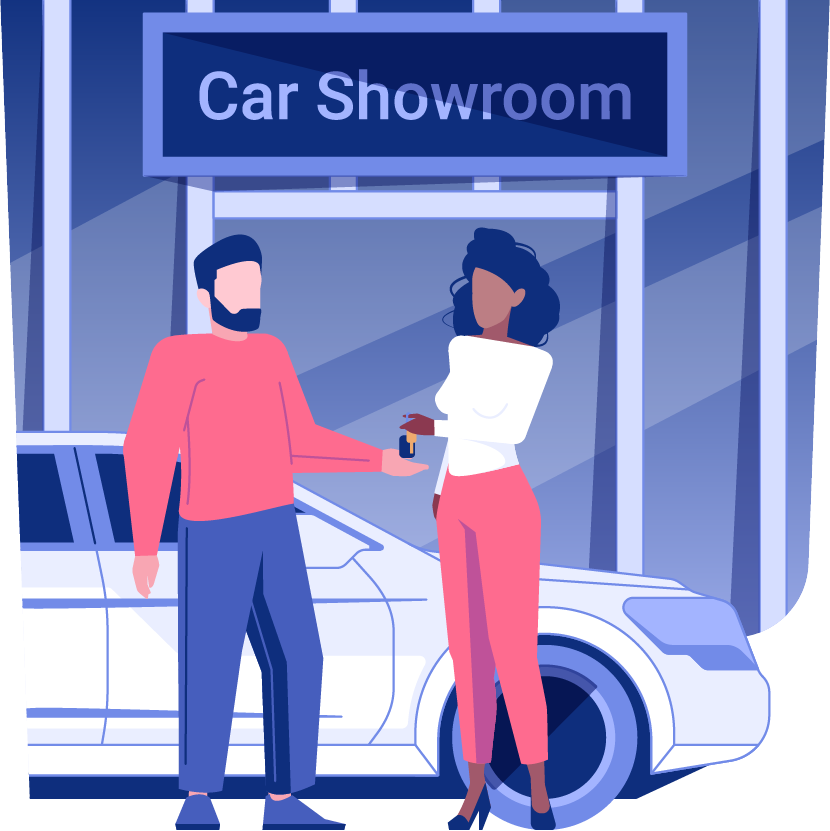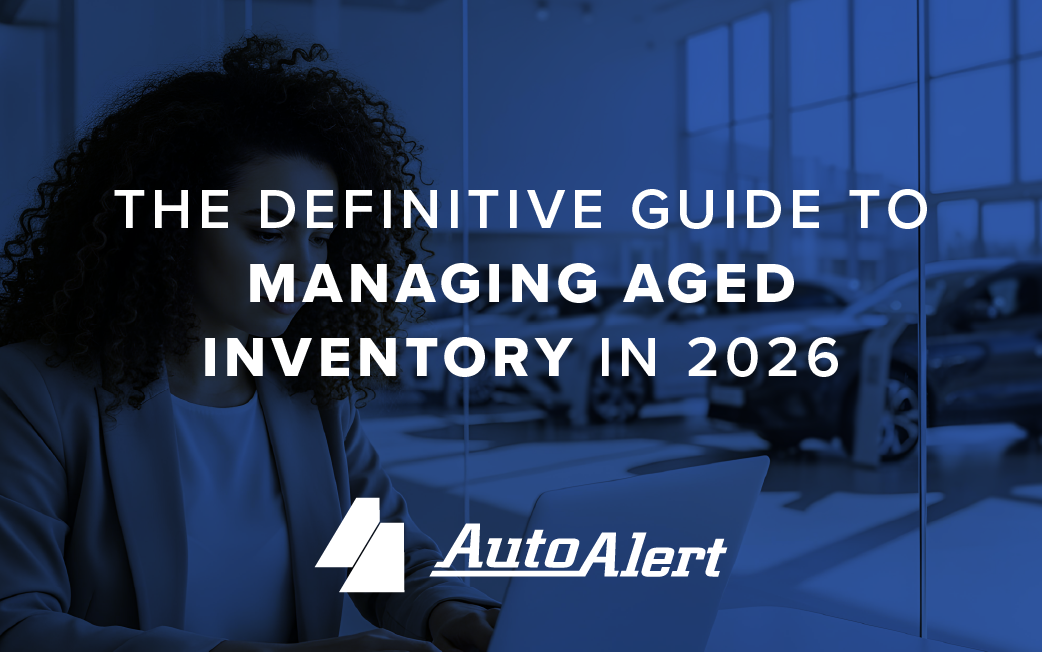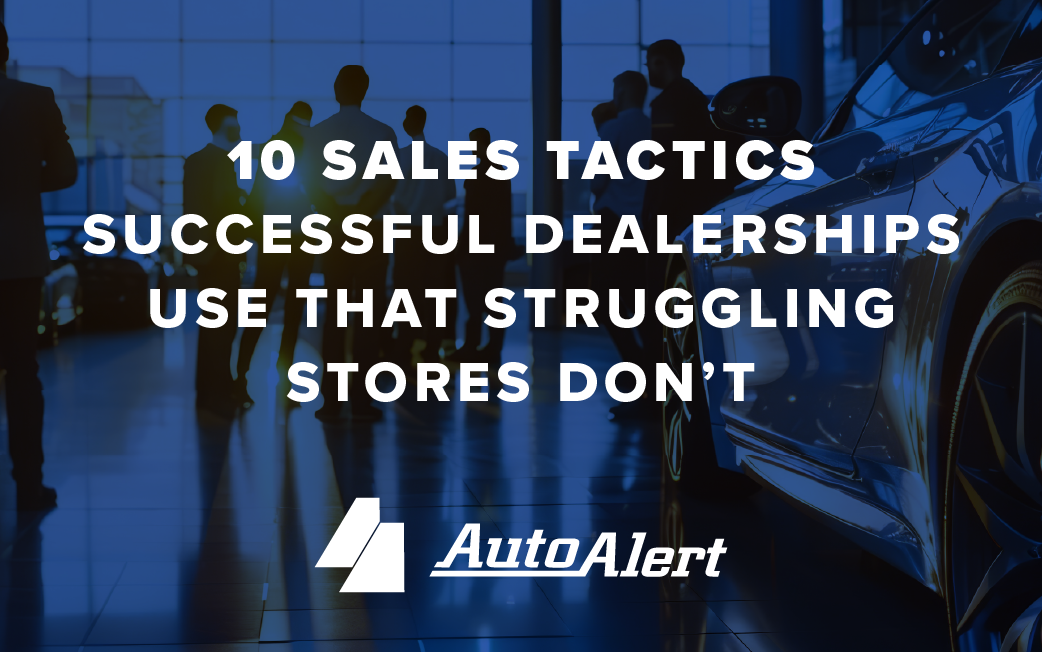How CRM Usage Directly Impacts Dealership Profitability
Want higher profits? See how consistent CRM usage improves retention, boosts efficiency, and drives dealership performance across the board.
In today’s ultra-competitive automotive retail environment, dealership profitability is not only a goal, it’s a life or death situation…for your dealership that is. It demands intelligent systems that connect dealerships with their customers seamlessly.
At the center of driving that profitability is your dealership’s CRM. When your CRM can be a strategic component of your dealership business plan, it can transform into a profit engine that improves customer retention, delivers efficient operations, and helps you close more deals, faster.
So, what’s the real impact of CRM usage on dealership profitability? Let’s break down what a quality-built CRM can do for your dealership.
1. Strengthen Customer Connections
It costs significantly more to acquire a new customer than to retain an existing one. But retention doesn’t happen by accident—it happens when your team builds and maintains strong relationships, powered by CRM data.
Automotive CRMs consolidate all customer touchpoints—phone, email, web, in-person—into one source of truth. Having a mountain-top view of each customer, from their purchase history to their service preferences, enables truly personalized interactions. These touchpoints aren’t just helpful; they are revenue-driving. When customers feel remembered and valued, they’re more likely to return for future service and purchases.

Consistent CRM usage enables:
- Timely follow-ups that keep customers engaged post-sale.
- Automated service reminders to bring them back into your service lane.
- Equity mining tools that surface upgrade opportunities right when they’re most relevant.
2. More Effective Lead Tracking
CRM systems capture leads from multiple channels—web, walk-ins, phone—and automatically guide them through the sales process. Advanced CRM systems, like AutoAlert CXM, often incorporate lead scoring algorithms, which assess the likelihood of a lead converting into a sale based on their interactions and behaviors.
By centralizing this information, sales teams can prioritize leads based on their readiness to buy, ultimately increasing conversion rates. Sales reps are assigned the right opportunities, and follow-ups are tracked automatically to prevent them from slipping through the cracks.
CRM systems help dealerships:
- Capture, organize, and track leads from various sources
- Automate follow-ups and task assignments
- Prioritize high-quality leads & improve response times.

3. Data That is Measured
Here’s the truth: most dealerships have a CRM, but not all CRMs are equal. The difference between mediocre results and record-breaking months often comes down to the quality of your CRM, the quality of its data, and its ability to analyze data and make it useful.
By analyzing customer preferences and purchase history, dealerships can identify patterns and preferences that inform inventory decisions and marketing strategies—ensuring they stock the right vehicles to meet demand and minimize holding costs.
This data-driven approach helps optimize pricing strategies while enhancing operational efficiency. This positions the dealership as a customer-centric business that prioritizes the needs and desires of its clientele, leading to increased sales volume and profit margins.
4. Streamlined Operations and Increased Efficiency
CRMs that are integrated with all of your dealership operations can automate routine tasks like data entry, appointment scheduling, and lead nurturing while allowing for seamless data flow across departments. These advancements reduce inefficiencies and improve collaboration while simultaneously freeing up staff to focus on building relationships and closing deals.
Integrated CRM’s provide sales teams with the tools they need to focus on closing deals more effectively, and streamlined workflows reduce operational costs and enhance productivity, naturally prompting staff to increase CRM usage and positively impacting profitability.
Efficient CRM usage helps your team:
- Respond to leads within minutes
- Maintain consistent, high-quality communication across platforms
- Automate initial responses while triggering human follow-up.

By streamlining processes and automating routine tasks, dealerships can focus more on building relationships with customers and less on administrative burdens.
5. Improved Follow-Up Processes
In automotive sales, speed matters, and your chances of converting a lead start to plummet the longer it takes to respond. Automobile CRMs streamline follow-up with built-in processes that are designed to ensure no lead slips through the cracks.
Automated reminders and task assignments help sales teams stay on top of their leads, making it easier to convert prospects into customers. These efficiencies are crucial in a fast-paced environment where timely communication can make all the difference.
Plus, the ability to track the effectiveness of follow-up strategies through analytics allows dealerships to continuously improve their approach, ensuring that they are not only reaching out but also resonating with potential buyers in a meaningful way.
If you are planning the “must-haves” in your dealership software stack, take a look at this article that breaks down the top ten features.
6. Consolidated Customer Data Hub
A dealership is a busy place, and time is money. Without CRM usage, your team wastes hours on manual data entry, miscommunication, duplicated efforts, or simply trying to remember who said what to whom.
By centralizing data leads, service records, and contact info, CRMs eliminate fragmented systems and boost inter-team coordination. Everyone from sales to service can collaborate better with a shared platform.

Consistent CRM usage enables:
- Timely follow-ups that keep customers engaged post-sale.
- Automated service reminders to bring them back into your service lane.
- Equity mining tools that surface upgrade opportunities right when they’re most relevant.
When your team is working from the same source of truth, they operate more efficiently—and that frees them up to focus on high-value activities like closing deals and providing great service.
7. Turning Your Service Drive into a Sales Drive
Your service lane is one of the most valuable sales channels you have, but only if your CRM is connected to it. With real-time equity alerts, service-to-sales handoffs, and upgrade opportunity notifications, your CRM can turn routine maintenance visits into new car sales.
Effective CRM usage in service enables:
- Proactively engage in upgrade conversations while the customer waits.
- Personalized offers based on payment, equity, and history.
- Coordinated communication between service advisors and sales staff.
Your service drive can provide a seamless customer experience, with high margins and a low-effort sales strategy, when powered by CRM insights.
8. Creating Personalized Communication
The most profitable dealerships don’t just sell cars—they sell experiences that bring customers back again and again. That requires lifecycle communication, not just a single transaction.
With a robust CRM, dealerships can segment their customer base and tailor communications accordingly. For instance, sending targeted promotions or service reminders based on a customer’s buying history.
This level of personalization makes customers feel valued and boosts the likelihood of repeat business. Additionally, integrating customer feedback into the CRM can further refine communication strategies, allowing dealerships to adjust their messaging based on real-time insights and customer sentiment
A database CRM enables lifecycle marketing, such as:
- End-of-lease or loan payoff alerts.
- Timely upgrade offers and incentives.
- Post-sale surveys and re-engagement campaigns.

9. Marketing That Hits the Mark
Your CRM isn’t just a sales tool. It’s a marketing measurement engine. It can track exactly where leads come from and which campaigns convert. This type of measurement can help increase engagement and impact when planning future campaigns.
CRM data enables dealerships to segment their customer base and create highly targeted and personalized marketing campaigns. With data-driven insights, you can segment audiences (like maintenance reminders or upsell offers) and automate email/SMS campaigns tailored to each segment.
With clean CRM data, you can:
- Stop wasting money on low-performing channels.
- Double down on marketing that drives showroom traffic.
- Customize offers and messaging based on real buyer behavior.
This leads to higher engagement, better conversion rates, and a more effective allocation of marketing resources, ultimately boosting marketing ROI.
10. Tracking Performance
When your CRM is used consistently, leadership becomes data-driven. You’re no longer managing on gut feeling or anecdotal feedback but leading with facts.
CRMs offer dashboards and reports to track everything, including sales trends, lead conversion, campaign performance, and inventory demand. These insights help you adapt strategies and act on real-time data, enabling managers to identify areas for improvement and implement strategies that drive sales growth.
Wondering how to motivate your dealership team? By utilizing real-time dashboards, sales teams can monitor their performance against set goals, fostering a competitive yet collaborative environment that encourages continuous improvement and accountability among team members.
These metrics allow for coaching that’s targeted, fair, and based on real behavior, driving a performance culture that consistently lifts profitability.
Make CRM a Culture, not a Tool
Profitability isn’t just about cutting costs or selling more cars; it’s about running a smarter, more connected dealership. Your CRM is the central nervous system that makes that possible. Your CRM usage enhances operational efficiency, enriches customer experiences, and equips your team with actionable intelligence. From tracking leads and responses to personalizing marketing and managing stock, a CRM builds the foundation for sustainable growth and superior service.
Want higher profits? Start with your CRM. Use it well. Use it consistently. And watch what happens next.
AutoAlert CXM has the data, and the know-how, to connect your efforts to your profits.
Continue your tech education with this next article about future tech trends every dealership should watch.




